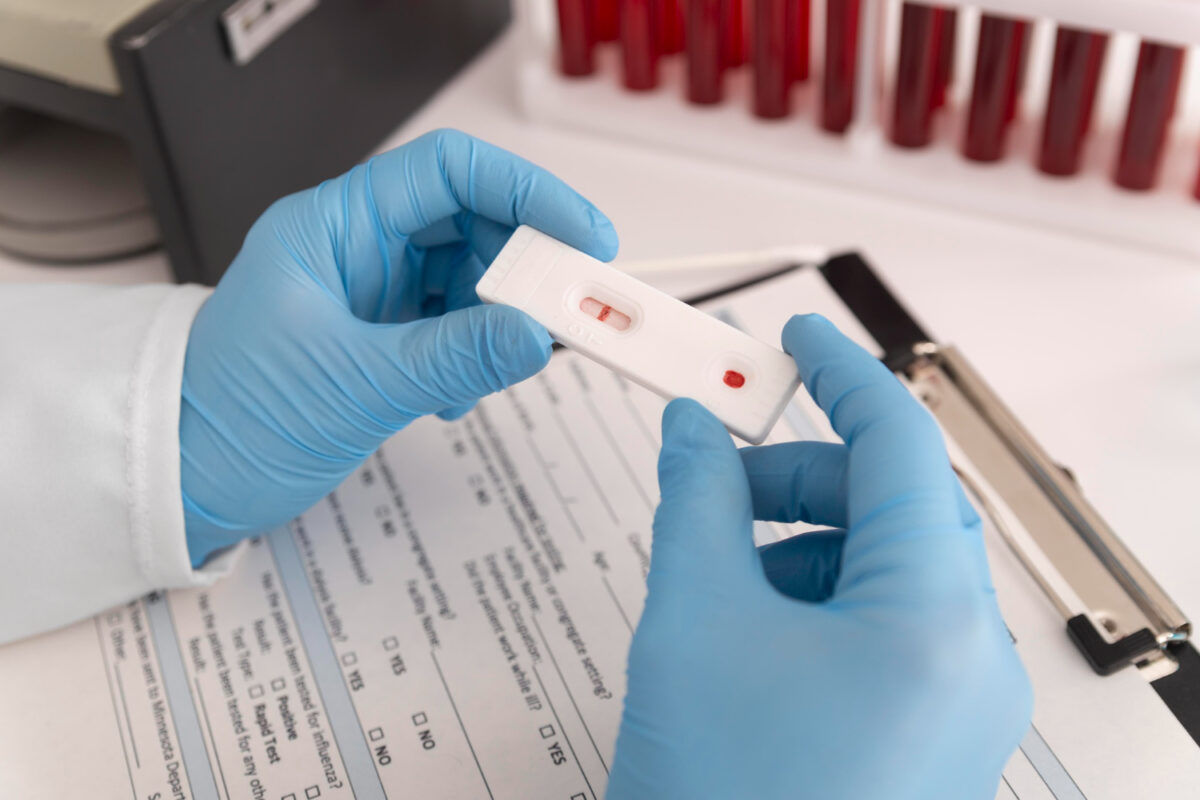What is beta hCG test : A beta hCG test, or beta-human chorionic gonadotropin test, is a blood test that measures the presence and levels of human chorionic gonadotropin (hCG) hormone in the body. This hormone is produced during pregnancy and serves as a vital indicator for the confirmation and monitoring of pregnancy. The beta hCG test plays a crucial role in various aspects of reproductive health, including pregnancy detection, assessment of fetal well-being, and diagnosis of certain medical conditions.
Introduction to Beta hCG
- Human Chorionic Gonadotropin (hCG):
Human chorionic gonadotropin is a hormone produced by the developing placenta shortly after the fertilized egg attaches to the uterine lining. This hormone is essential for the maintenance of the corpus luteum, which in turn produces progesterone during early pregnancy.
Types of Beta hCG Tests:
There are two primary types of beta hCG tests: qualitative and quantitative.
Qualitative Beta hCG Test
This test confirms the presence or absence of hCG in the blood. It is commonly used for early pregnancy detection.
Quantitative Beta hCG Test
This test measures the exact amount of hCG in the blood. It provides information about the concentration of hCG and is valuable for monitoring the progression of pregnancy and assessing potential complications.
Clinical Applications of Beta hCG Tests
- Pregnancy Confirmation Beta hCG tests are widely used to confirm pregnancy. In the early stages, the concentration of hCG in the blood increases rapidly, allowing for the detection of pregnancy even before symptoms become apparent.
- Monitoring Pregnancy Progression
Quantitative beta hCG tests are employed to monitor the progression of pregnancy. Normal increases in hCG levels are expected during the first trimester, and deviations may indicate potential issues, such as ectopic pregnancy or miscarriage.
- Assessment of Fetal Well-Being Beta hCG levels are often monitored in conjunction with other prenatal tests to assess fetal well-being. Abnormalities in hCG levels can be indicative of fetal developmental issues.
- Detecting Pregnancy Complications
Beta hCG tests are instrumental in identifying complications such as gestational trophoblastic disease (GTD), which includes conditions like molar pregnancies. Monitoring hCG levels aids in early diagnosis and appropriate management.
- Management of Assisted Reproductive Technologies (ART) In assisted reproductive technologies like in vitro fertilization (IVF), beta hCG tests are employed to confirm the success of implantation and monitor the early stages of pregnancy.
Procedure and Interpretation:
- Procedure: Beta hCG tests involve a simple blood draw. The blood sample is then analyzed in a laboratory to determine the presence and concentration of hCG.
- Interpretation of Results Positive Result (Qualitative Test)
A positive result indicates the presence of hCG and confirms pregnancy. Quantitative Results:
The hCG levels are measured in milli-international units per milliliter (mIU/mL). Normal ranges vary, but a steady increase is expected during early pregnancy. Deviations may require further investigation. - Timing of Beta hCG Testing Beta hCG tests can be conducted as early as 10 days after conception. However, for more accurate results, testing is often recommended around the time of the expected menstrual period.
Factors Influencing Beta hCG Levels:
- Normal Variations Normal hCG levels can vary among individuals, and a wide range of values is considered normal. Factors such as age, weight, and individual health can influence these variations.
- Multiple Pregnancies:
In cases of multiple pregnancies (twins, triplets, etc.), hCG levels tend to be higher than in singleton pregnancies.
- Ectopic Pregnancy:
Lower-than-expected or slower-rising hCG levels may indicate an ectopic pregnancy, where the fertilized egg implants outside the uterus.
- Pregnancy Loss:
A sudden drop in hCG levels may signal a miscarriage or other pregnancy complications.
Considerations and Limitations:
- False Positives:
Certain medical conditions and medications can lead to false-positive results. It is essential to consider these factors when interpreting beta hCG test results.
- False Negatives:
In some cases, the test may produce false-negative results, especially if conducted too early in pregnancy or if the hCG levels are not yet detectable.
- Additional Testing:
Beta hCG tests are often complemented by other diagnostic tools, such as ultrasound, to provide a comprehensive assessment of pregnancy and potential complications.
Conclusion
In conclusion, the beta hCG test is a vital tool in reproductive health, serving multiple purposes in the detection and monitoring of pregnancy. From confirming pregnancy to assessing fetal well-being and identifying complications, beta hCG tests provide valuable insights for healthcare professionals. Understanding the procedure, interpretation of results, and the factors influencing hCG levels is crucial for both healthcare providers and individuals undergoing these tests. While beta hCG tests are highly informative, they are often part of a broader approach to reproductive healthcare, combining clinical expertise and various diagnostic tools for a comprehensive understanding of pregnancy and related conditions.

